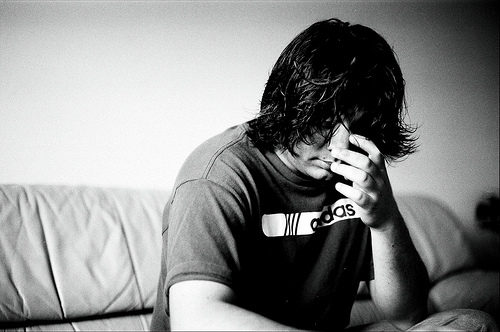| |
Keep your Soul by Speaking to it - an excerpt from Soul Keeping

The formation of the soul is the most important process in the universe. John Keats wrote, "Call this world if you please 'The vale of soul-making.'" in our day, we talk a lot about self-talk. Apparently, that's a really important part of the human condition. Everybody here talks to themselves. in the Bible, people talk to their souls. The difference between talking to yourself and talking to yoursoul is that the soul exists in the presence of God. So you will see in the Psalms and elsewhere people speaking to their souls because when you speak to the soul, it naturally turns to prayer because in the sould God is always present.
Your soul is not the same thing as your emotions. We live in a world where we're encouraged to think that our feelings dominate our lives and that we are powerless over them. Even contemporary research indicates the power God has placed in the soul to be master of our emotions. In one study, researchers presented subjects with pictures of angry faces. Half of the participants were told simply to observe the faces. The other half were instructed to label the emotion on each face. The simple act of labeling the emotion reduced its emotional impact on their own moods. It also reduced the activation of the brain region associated with strong primitive emotion.
Normally when we are angry about something we mutter under a breath "Well, that sure was stupid you big dummy." We beat up on ourselves, or worse, on others. We may find temporary relief from that, but the soul still cries for attention. The next time you blow something - when you're frightened, when you're dissatisfied - instead of mindless self talk, speak to your soul: "Why are you afraid, O my soul?" At first it might seem a little silly, but remember, you are the keeper of your soul. Only you.
Not long ago I got really angry at somebody. Finally I literally stopped in my tracks because I was so immersed in anger and said, "Soul why you so angry?" Something interesting happened. I found that I just began to pray, and it was like God saying to me, "John, you are your not your anger." It's like my soul had a place to stand with God, and we could talk sensibly about my anger, even as it ebbed from my soul.
"I am the master of my fate: I am the captain of my soul."
No, I am its keeper, not it's captain. I did not make it, and I cannot save it from death.
That's why soul-care is a different task than self-care. I do not care for my soul only for my own sake. It's only mine on loan, and it's coming due soon.
(Soul Keeping by John Ortberg p91-93)
photo credit: spo0nman via photopin cc
|
David Wanstall, 13/01/2015
|
|
|
|